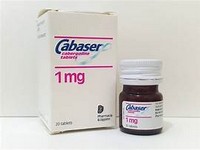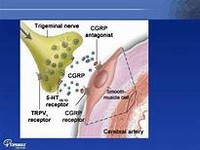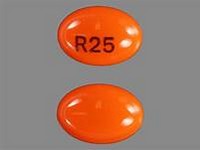Amisulpride

Amisulpride
CLINICAL USE
Treatment of acute and chronic
schizophrenia
DOSE IN NORMAL RENAL FUNCTION
50–1200 mg daily (in divided doses if
>300 mg); varies according to indication
PHARMACOKINETICS
Molecular weight :
369.5
%Protein binding :
16
%Excreted unchanged in urine :
50
Volume of distribution (L/kg) :
5.8
half-life – normal/ESRD (hrs) :
12/Unchanged
DOSE IN RENAL IMPAIRMENT
GFR (mL/MIN)
30–60 Reduce dose by 50%
10–30 Use a third of the dose.
<10 :
Use with caution. Start with
minimum dose and increase
according to patient’s response
DOSE IN PATIENTS UNDERGOING RENAL REPLACEMENT THERAPIES
CAPD :
Not dialysed. Dose as in
GFR <10 mL/min
HD :
Poorly dialysed. Dose as in
GFR <10 mL/min
HDF/high flux :
Unknown dialysability. Dose as in
GFR <10 mL/min
CAV/VVHD :
Poorly dialysed. Dose as in
GFR=10–30 mL/min
IMPORTANT DRUG INTERACTIONS
Potentially hazardous interactions with other drugs
Alcohol: may enhance CNS effects of
alcohol
Anaesthetics: enhanced hypotensive effect
Analgesics: increased risk of convulsions
with tramadol; enhanced hypotensive and
sedative effects with opioids
Antiarrhythmics: increased risk of
ventricular arrhythmias with antiarrhythmics that prolong the QT interval;
avoid concomitant use with amiodarone,
disopyramide and procainamide (risk of
ventricular arrhythmias)
Antibacterials: avoid concomitant use with
parenteral erythromycin (increased risk of
ventricular arrhythmias)
Antidepressants: increased level of
tricyclics
Antiepileptics: antagonises anticonvulsant
effect
Antihypertensives: increased risk of
hypotension
Antimalarials: avoid concomitant use with
artemether/lumefantrine
Antipsychotics: increased risk of
ventricular arrhythmias with sertindole –
avoid concomitant use
Antivirals: concentration possibly
increased by ritonavir
Anxiolytics & hypnotics: increased
sedative effects
Atomoxetine: increased risk of ventricular
arrhythmias
Beta-blockers: increased risk of ventricular
arrhythmias with sotalol
Diuretics: increased risk of ventricular
arrhythmias due to hypokalaemia
Pentamidine: increased risk of ventricular
arrhythmias – avoid
Sibutramine: increased risk of CNS
toxicity – avoid concomitant use
ADMINISTRATION
Reconstition
–
Route
Oral
Rate of Administration
–
Comments
–
OTHER INFORMATION
Elimination half-life is unchanged in
patients with renal insufficiency, while
systemic clearance is reduced by a factor
of 2.5–3. The area under the curve of
amisulpride in mild renal failure is
increased 2-fold, and almost 10-fold in
moderate renal failure. Experience is
limited and there is no data with doses
>50 mg
See how to identify renal failure stages according to GFR calculation
See how to diagnose irreversible renal disease
Home









